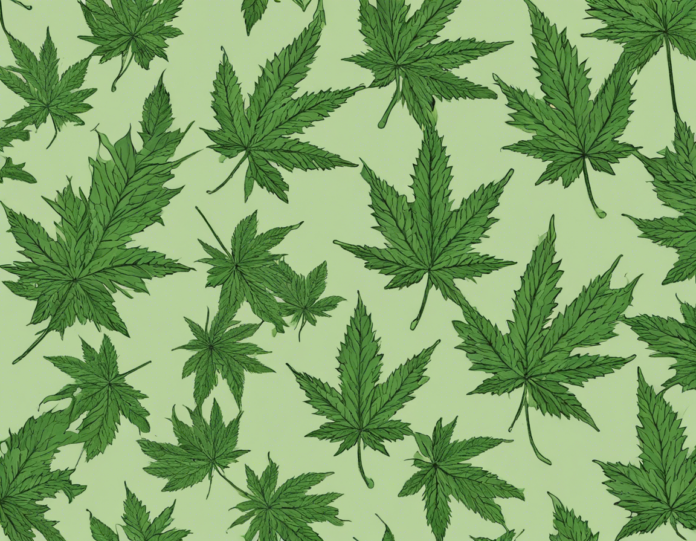Introduction
Cannabis, also known as marijuana, has long been a topic of controversy and debate. However, with changing laws and growing acceptance around the world, pot leaves have emerged as a potent and versatile source of benefits for various uses. From medical purposes to recreational enjoyment, the potential of pot leaves is vast and varied. In this comprehensive guide, we will delve into the myriad benefits and applications of cannabis leaves, shedding light on their potential power and versatility.
Understanding Cannabis Leaves
One of the key components of the cannabis plant is its leaves. These leaves are where the plant produces a high concentration of cannabinoids, the chemical compounds responsible for the plant’s medicinal and psychoactive effects. The two most well-known cannabinoids found in cannabis leaves are tetrahydrocannabinol (THC) and cannabidiol (CBD).
THC is the primary psychoactive compound in cannabis, responsible for the “high” or euphoric feeling often associated with marijuana use. On the other hand, CBD is a non-psychoactive compound known for its potential therapeutic benefits, including pain relief, anti-inflammatory properties, and anxiety reduction.
Health Benefits of Cannabis Leaves
The medicinal properties of cannabis leaves have been known for centuries and are now gaining widespread recognition in modern medicine. Some of the health benefits associated with cannabis leaves include:
Pain Relief: Cannabis leaves have been used for centuries as a natural pain reliever. The cannabinoids in cannabis, particularly CBD, have shown promise in alleviating chronic pain conditions such as arthritis, fibromyalgia, and migraines.
Anti-Inflammatory Properties: Inflammation is the body’s natural response to injury or illness, but chronic inflammation can lead to various health issues. Cannabis leaves, especially CBD, possess powerful anti-inflammatory properties that can help reduce inflammation and associated pain.
Anxiety and Stress Reduction: Cannabis leaves have been shown to have calming effects on the mind and body, making them a popular choice for individuals dealing with anxiety, stress, and PTSD. CBD is particularly effective in promoting relaxation and reducing symptoms of anxiety.
Improved Sleep: For individuals struggling with insomnia or sleep disorders, cannabis leaves may offer a natural solution. CBD can help promote relaxation and improve sleep quality, leading to a restful night’s sleep.
Neuroprotective Effects: Research suggests that cannabis leaves, specifically CBD, have neuroprotective properties that may help protect the brain from damage and age-related decline. This makes cannabis a potential candidate for treating neurodegenerative diseases such as Alzheimer’s and Parkinson’s.
Different Ways to Use Cannabis Leaves
Cannabis leaves can be consumed in various forms, each offering unique benefits and effects. Some of the popular methods of using cannabis leaves include:
Smoking: Smoking dried cannabis leaves is one of the most common methods of consumption, with effects typically felt within minutes. Smoking allows for quick absorption of cannabinoids into the bloodstream, providing fast-acting relief for pain, anxiety, or stress.
Vaping: Vaping cannabis leaves involves heating the plant material to a temperature where cannabinoids are released as vapors. Vaping is considered a healthier alternative to smoking, as it eliminates the harmful toxins associated with combustion.
Edibles: Consuming cannabis leaves in the form of edibles, such as brownies, gummies, or infused beverages, offers a discreet and delicious way to experience the benefits of cannabis. Edibles take longer to kick in but provide long-lasting effects.
Topicals: Cannabis-infused topicals, such as lotions, balms, and salves, are applied directly to the skin and can help with localized pain relief, inflammation, and skin conditions. These products do not produce psychoactive effects and are ideal for individuals seeking relief without the high.
Tinctures: Cannabis tinctures are liquid extracts that are typically consumed sublingually (under the tongue). Tinctures offer a fast and efficient way to absorb cannabinoids into the bloodstream, making them a popular choice for quick relief.
Frequently Asked Questions (FAQs)
- Is it legal to use cannabis leaves for medicinal purposes?
-
The legality of cannabis varies from country to country and state to state. It’s essential to research and understand the laws in your area before using cannabis leaves for medicinal purposes.
-
Are there any side effects of using cannabis leaves?
-
While cannabis leaves are generally safe for most people, some individuals may experience side effects such as dry mouth, dizziness, or impaired motor skills. It’s essential to start with low doses and monitor your body’s response.
-
Can cannabis leaves be used for treating mental health conditions?
-
Cannabis leaves, particularly CBD, have shown promise in alleviating symptoms of anxiety, depression, and PTSD. However, it’s crucial to consult with a healthcare professional before using cannabis for mental health conditions.
-
Are there any contraindications for using cannabis leaves?
-
Individuals who are pregnant, breastfeeding, or have a history of substance abuse should avoid using cannabis leaves. Additionally, cannabis may interact with certain medications, so it’s essential to consult with a doctor before use.
-
How can I ensure the quality and potency of cannabis leaves?
- To ensure the quality and potency of cannabis leaves, purchase products from reputable sources that conduct third-party lab testing. Look for products with clear labeling indicating the cannabinoid content and ensure they are free of harmful contaminants.
In conclusion, the power of pot leaves extends far beyond recreational use, offering a wide array of health benefits and therapeutic applications. Whether you’re seeking pain relief, stress reduction, improved sleep, or neuroprotection, cannabis leaves can be a valuable addition to your wellness routine. With proper research, dosing, and guidance, cannabis leaves have the potential to enhance your overall well-being and quality of life.


Recent comments